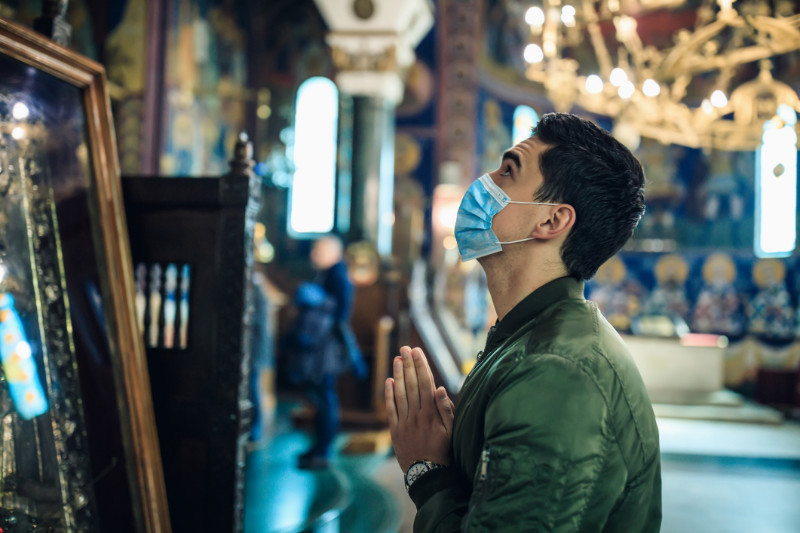Throughout history, humanity has turned to religion and spirituality for guidance, comfort, hope, and solace. What role do church organizations play in communities and the lives of private individuals during these trying times?
The challenges posed by COVID-19
The United States is home to roughly 345,000 religious congregations of various denominations and faiths, with 45% of all Americans attending religious services monthly. At a time when people are encouraged to socially distance themselves, congregations and individuals may face challenges in maintaining their spiritual and social connections.
For centuries, congregations have played a vital role in providing social support and services to communities.
They also play a critical role in serving low-income communities, racial-ethnic minority groups, the elderly, immigrants, and other vulnerable and underserved sectors of society. Because of this, congregations can make a significant contribution to short-term and long-term COVID-19 response in their respective communities.
How religious congregations can help during COVID-19
For one, congregations can provide physical infrastructure that can be leveraged to deliver essential goods and services to vulnerable groups. They can also provide food, healthcare, counseling, and job opportunities through their vast social networks and linkages with various institutions and other faith-based organizations.
Secondly, their social service programming tends to be highly localized and is geared towards the community’s needs. There is the perception that religious communities are roped off from the general public, constituting a single sector or separate entity.
But this couldn’t be further from the truth – congregations by their very nature are complex and diverse. These congregations are integrated into societies, communities, and local economies.
Their sheer ubiquity and presence make it possible to take a broad and coordinated approach to COVID-19 prevention and provide support to those affected by the virus.
But most importantly, nearly all sacred scriptures emphasize caring for the needy and service towards others. Compassion is ingrained in many churches, and the pandemic offers many opportunities for the faithful to serve their communities and demonstrate kindness.
Church leaders and members have shown their creativity and generosity during the pandemic, adapting to quickly changing circumstances, finding ways to practice their faith, and in some cases, serving as a lifeline to underserved communities despite restrictions.
Practicing faith during the pandemic
Across the globe, houses of worship and pilgrimage sites have either closed or limited in-person services in response to COVID-19. As a result, church leaders have turned to creative and innovative solutions that serve as an inspiration to their communities in adapting to the new normal.
Pew Research Center data from March 2020 shows that many Americans who regularly attend religious services have transitioned to online observance. An increasing number of pastors are also offering drive-through church services and virtual fellowship meetings, while some congregations now conduct virtual baptisms, weddings, and other religious events.
A.D. Advisors helps congregations sell church-owned properties in the United States and Canada. We understand the needs and challenges faced by congregations during these trying times. You can contact our real estate experts here. You can also reach out at Info@ADAdvisors.org and 630.606.9000.


Leave a Comment